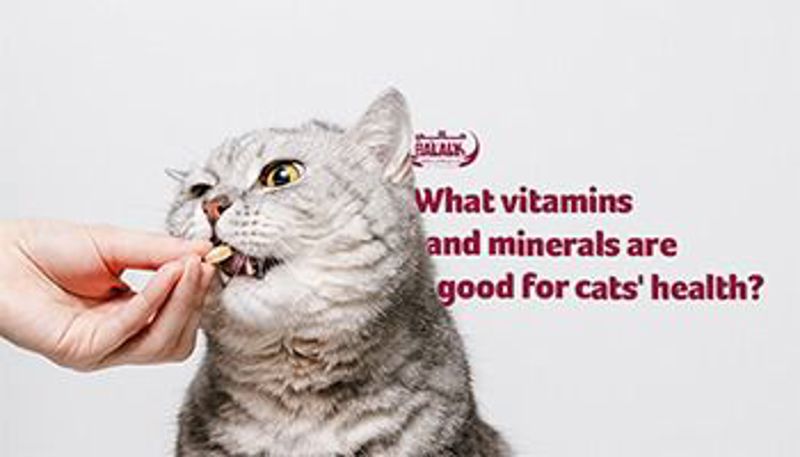Cats need a balanced diet that contains essential vitamins and minerals to keep them healthy and active. Cats' nutritional needs are different from humans, so it's important to make sure they get the right nutrients through their daily food. In this article, we'll review the most important vitamins and minerals that cats need to stay healthy.
Vitamin A
Vitamin A is essential for the health of cats' eyes, skin, and immune systems. This vitamin helps improve night vision and maintain healthy skin and hair. Cats cannot convert beta-carotene found in plants into vitamin A like humans do, so they must get it from animal sources such as liver and fish oils.
Vitamin B
B vitamins are a group of nutrients essential for metabolism and nervous system health. These vitamins include:
Vitamin B1 (thiamine): Essential for nervous system and muscle function.
Vitamin B2 (riboflavin): Supports healthy skin and eyes.
Vitamin B3 (niacin): Contributes to maintaining healthy digestive system and skin.
Vitamin B6 (pyridoxine): Important for the production of neurotransmitters and the formation of red blood cells.
Vitamin B12: Helps form DNA and support nerve function.
Good sources of B vitamins include meat, fish, eggs, and liver.
Vitamin D
Vitamin D helps with the absorption of calcium and phosphorus, which promotes healthy bones and teeth. Unlike humans, cats cannot make vitamin D from exposure to sunlight, so they must get it from their diet. Vitamin D is found in fatty fish such as salmon, and in beef liver.
Vitamin C
Although cats can produce vitamin C within their bodies, it can be beneficial in some cases as an antioxidant, helping to fight inflammation and boost immunity. It can be found in some cat supplements, but it is not essential in the daily diet.
Minerals
In addition to vitamins, cats need a variety of minerals to maintain healthy bones, teeth, and other vital functions. Essential minerals include:
Calcium
Calcium is essential for the formation of strong bones and teeth, and it also plays a role in blood clotting and nerve and muscle function. Cats need a delicate balance of calcium and phosphorus, as an imbalance can lead to health problems such as osteoporosis or poor growth.
Good sources of calcium include dairy products, well-cooked bones, and cat supplements.
Zinc
Zinc is an important mineral for healthy skin, wound healing, and a strong immune system. A deficiency can lead to skin problems and loss of appetite. Zinc is found in red meat, liver, and poultry.
Best Sources of Vitamins and Minerals
The best way to ensure your cat gets all the nutrients she needs is to feed her a balanced diet that contains natural ingredients rich in vitamins and minerals. Some good sources include:
Meat and fish: Provides protein and essential vitamins such as vitamins B and D.
Liver: Rich in vitamin A and iron.
Eggs: A good source of B vitamins and protein.
High-quality commercial foods: Often fortified with vitamins and minerals to ensure complete nutrition.
Symptoms of Vitamin and Mineral Deficiencies
There may be signs that your cat is deficient in a vitamin or mineral. Common symptoms include:
Vitamin A deficiency: poor vision, dry skin, weak immunity.
Vitamin B deficiency: loss of appetite, muscle weakness, neurological problems.
Vitamin D deficiency: osteoporosis, muscle weakness.
Calcium deficiency: muscle cramps, weak bones, loss of appetite.
Zinc deficiency: hair loss, skin infections, slow wound healing.
If you notice any of these symptoms in your cat, it is best to consult a veterinarian to examine her and determine if she needs nutritional supplements or a change in her diet.
Conclusion
Cats need a balanced diet that contains the necessary vitamins and minerals to maintain their health and activity. It is important to provide food rich in essential nutrients such as meat, fish, and eggs, in addition to ensuring that the commercial food that cats eat contains the required nutrients. If you suspect that your cat has a nutritional deficiency, it is best to consult a veterinarian to determine the appropriate solution.























































